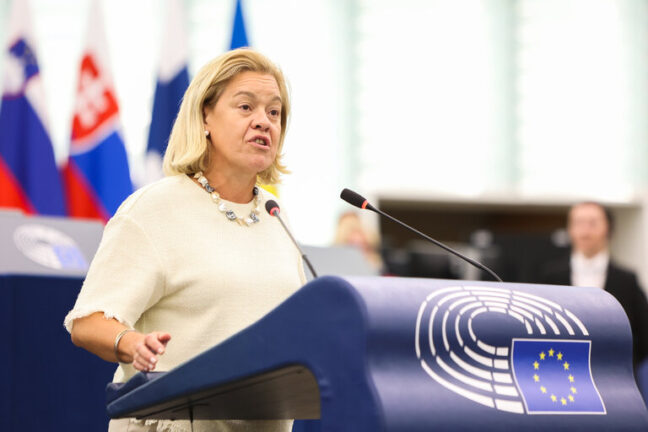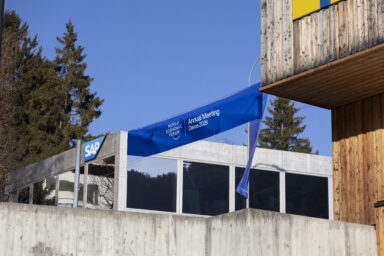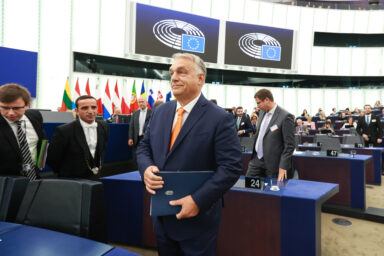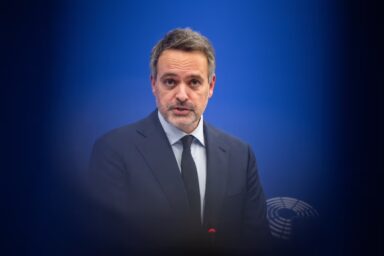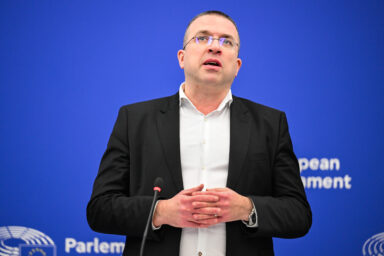The European Commission is gearing up to unveil its proposal for the next long-term budget on 16 July. Last week marked one of the last chances for MEPs to weigh in. Parliamentarians strongly rejected the Commission’s idea of managing key programmes through national plans and demanded predictability.
While the Commission promises a leaner and more flexible budget, MEPs across the spectrum are drawing red lines. The proposed overhaul would reduce the number of budget envelopes from seven to four, streamlining the structure but potentially reshuffling political priorities. MEPs fear the shift could come at the expense of long-standing EU pillars like agriculture, cohesion, and social policy.
The Commission is also preparing a powerful new industrial policy instrument: the European Competitiveness Fund (ECF). By merging up to 14 existing budget lines, the ECF would pool public and private resources to invest in strategic sectors like defense technology and artificial intelligence. It would tap into the full EU financial toolbox, grants, loans, equity, blending, procurement, and guarantees, giving the Commission unprecedented flexibility in steering funding.
A leaner budget
According to Piotr Serafin, head of the Commission’s budget unit, the overhaul is meant to make EU finances more competitive and results-driven. “The world around us is changing rapidly,” Mr Serafin told MEPs on Wednesday. “New challenges require smarter responses.” But with growing repayment obligations and limited fresh resources, the coming years could be marked by difficult trade-offs.
That is exactly what many MEPs fear.
You might be interested
“Security, defense, and competitiveness are top priorities” said Siegfried Mureșan (EPP/ROU), one of the Parliament’s lead MFF negotiators. In the current budget, security and defence only amount to 1,2 per cent of total expenses. However, Mr Mureșan underlined that this shifted priority must not come at the cost of food security and cohesion policy. “There is no competitive economy without a strong investment policy.”
Agriculture funds under pressure
The Common Agricultural Policy (CAP) and cohesion funding, which together make up nearly two-thirds of the EU’s current seven-year budget, are under pressure. While the Commission insists that food security and rural development will remain protected, MEPs warn of significant structural changes.
CAP, the EU’s system of subsidies and support for farmers, alone represents about one-third of the EU’s €1.2tn long-term budget. Its share has steadily declined, but it remains a politically sensitive item. Around 79% goes to direct payments to farmers, while 21% supports rural development. Speculations are rife that CAP subsidies could face cuts of up to 15–20% in the next cycle.
Any attempt to merge CAP pillars or centralise funding further has encountered resistance. In May, farmer organisations took to the streets of Brussels to protest what they see as a threat to decentralised agriculture support. This week in Strasbourg, MEPs echoed those concerns.
Fragmentation fears
“The identity of these policies must be preserved,” Mr Mureșan said last week. “A clear and distinct budget for farmers is more relevant than ever.” Tamás Deutsch (PfE/HUN) went a step further: “This is a delusion. Bureaucrats in Brussels are designing a budget for war. They want to cut agriculture and cohesion and centralise everything against citizens.”
Cohesion policy, the EU’s main investment strategy to reduce regional disparities and second major pillar of spending, is also up for reform. The Commission wants to link payments more closely to national-regional reforms agreed with Brussels, creating stronger conditionality through new “partnerships”. Critics fear this will undermine the solidarity principle and turn cohesion into a tool of central control.
MEP Carla Tavares (S&D/PRT), co-rapporteur on the MFF, warned last Wednesday: “We don’t want to fragment cohesion policy. It must remain a central pillar of EU investment, and current financing levels must be maintained.” Mr Mureșan reinforced that message: “Our utmost priority is that the identity and strength of the common agriculture and cohesion policies be preserved.”
Social fund: The next battleground
Another key flashpoint is the European Social Fund Plus (ESF+), currently worth €140bn. MEPs fear the Commission may divert funds from ESF+ to finance industrial and defence priorities.
“This revision shows the Commission’s real direction: less social policy, more money for a few strategic sectors,” MEP Marit Maij (S&D/NLD), Parliament’s rapporteur on ESF+, previously warned. “The social fund is for people, not defence companies.”
You want to make funding conditional on fulfilling crazy ideas. It’s madness. – MEP Patryk Jaki (ECR/POL)
MEP Mohammed Chahim (S&D/NLD) echoed the concerns: “Cutting the social fund is irresponsible and inappropiate. Yes, we must invest in defense, but not by sidelining the most vulnerable. That would leave Europe without a soul.”
Conditionality: Yet another flashpoint
Ms Tavares drew a clear red line: “We will not accept an MFF without a clear, independent and strong European Social Fund. Article 162 of the Treaty makes clear it is a key instrument to strengthen the EU’s social dimension.”
The new MFF is also expected to deepen the link between EU payments and rule-of-law standards. The Renew group strongly backs the EC intention. Valérie Hayer (Renew/FRA), the group chair stated: “We set clear conditions: No EU money for autocrats, but continued support for civil society,” she said earlier last week.
The conditionality principle, however, is likely to face resistance from governments in Warsaw and Budapest. MEP Patryk Jaki (ECR/POL) dismissed the proposal as an attempt by the Commission to impose a woke agenda on EU member states. “You [the Commission] have taken the best continent and ruined it,” he said. “Now you want to make funding conditional on fulfilling crazy ideas. It’s madness.”
Repayments and revenue
Meanwhile, financial strain looms. Repayments on the €800bn borrowed under the NextGenerationEU recovery fund begin in 2028 and could cost up to €30bn annually by 2034, nearly one-fifth of the current EU budget. Commissioner Serafin said the EU must face the debate on new revenue sources, as member states are reluctant to increase their national contributions. He advocated for fresh income streams that neither overburden national budgets, nor create extensive financial obligations.
MEP Fabienne Keller (Renew/FRA) called for ambition: “We expect something simple and forward-looking. But citizens also expect more resources.”
However, several member states — Austria, Belgium, France, Italy, Malta, Poland, Romania, Slovakia, and Hungary — are already under EU scrutiny for excessive deficits, making them wary of increasing national contributions.
